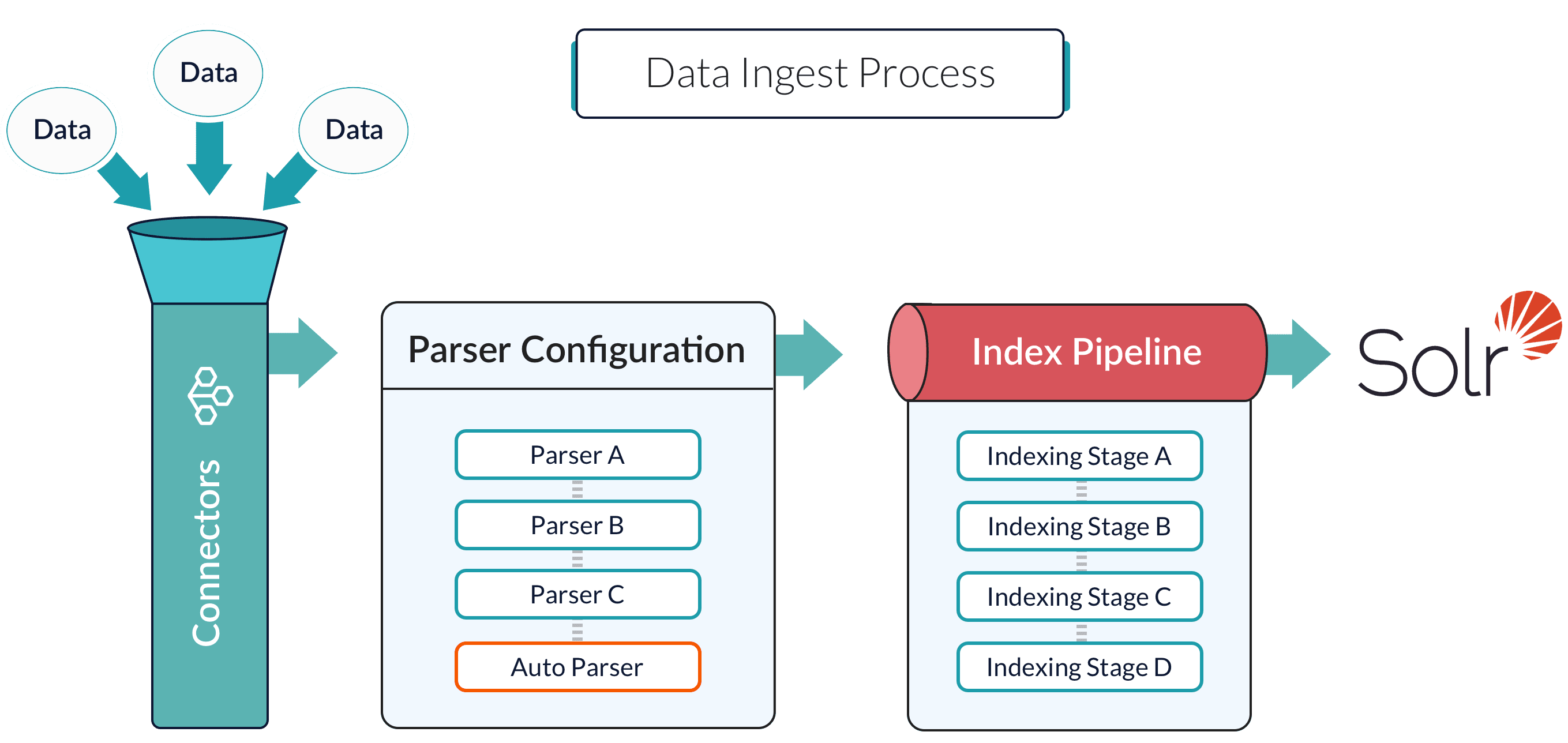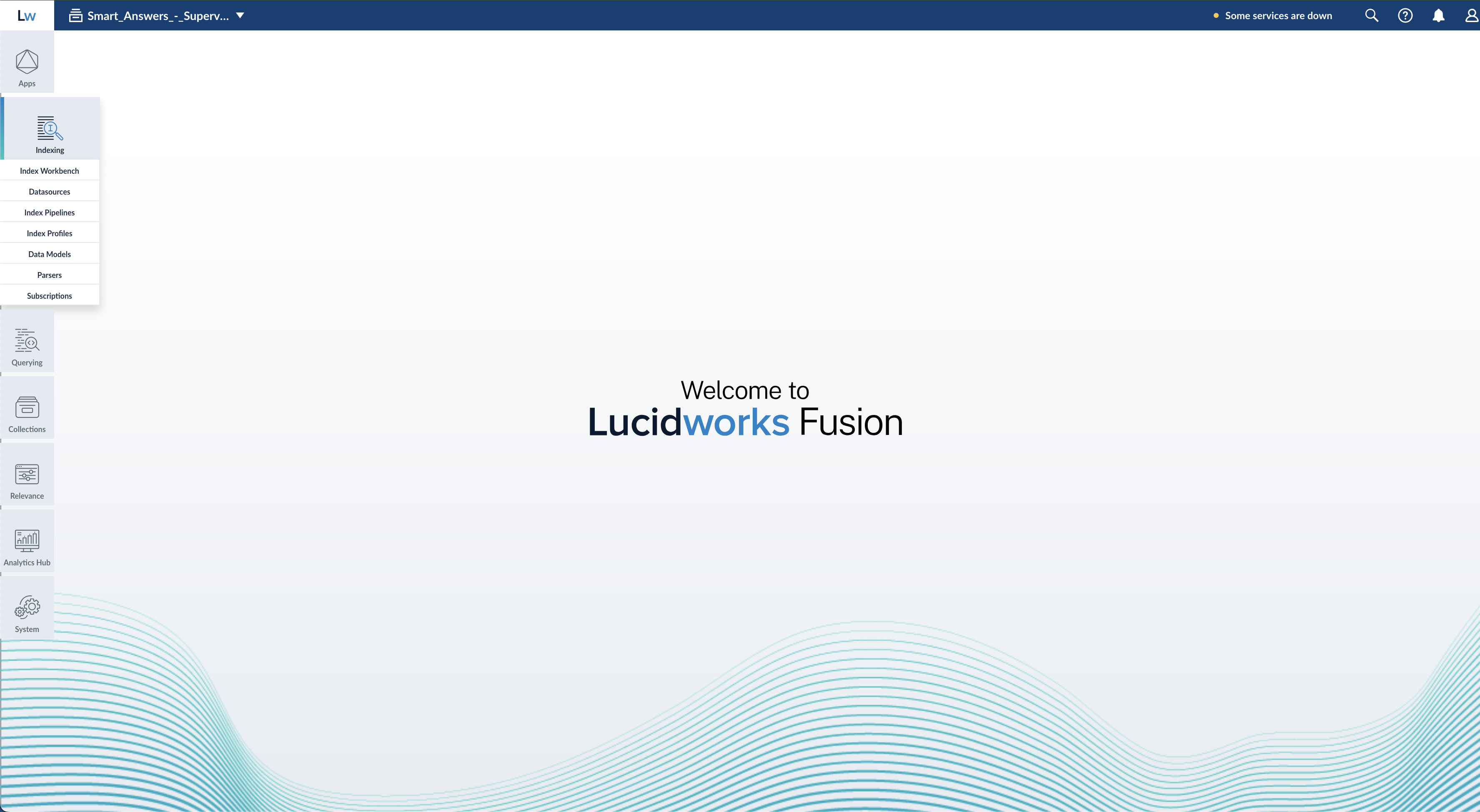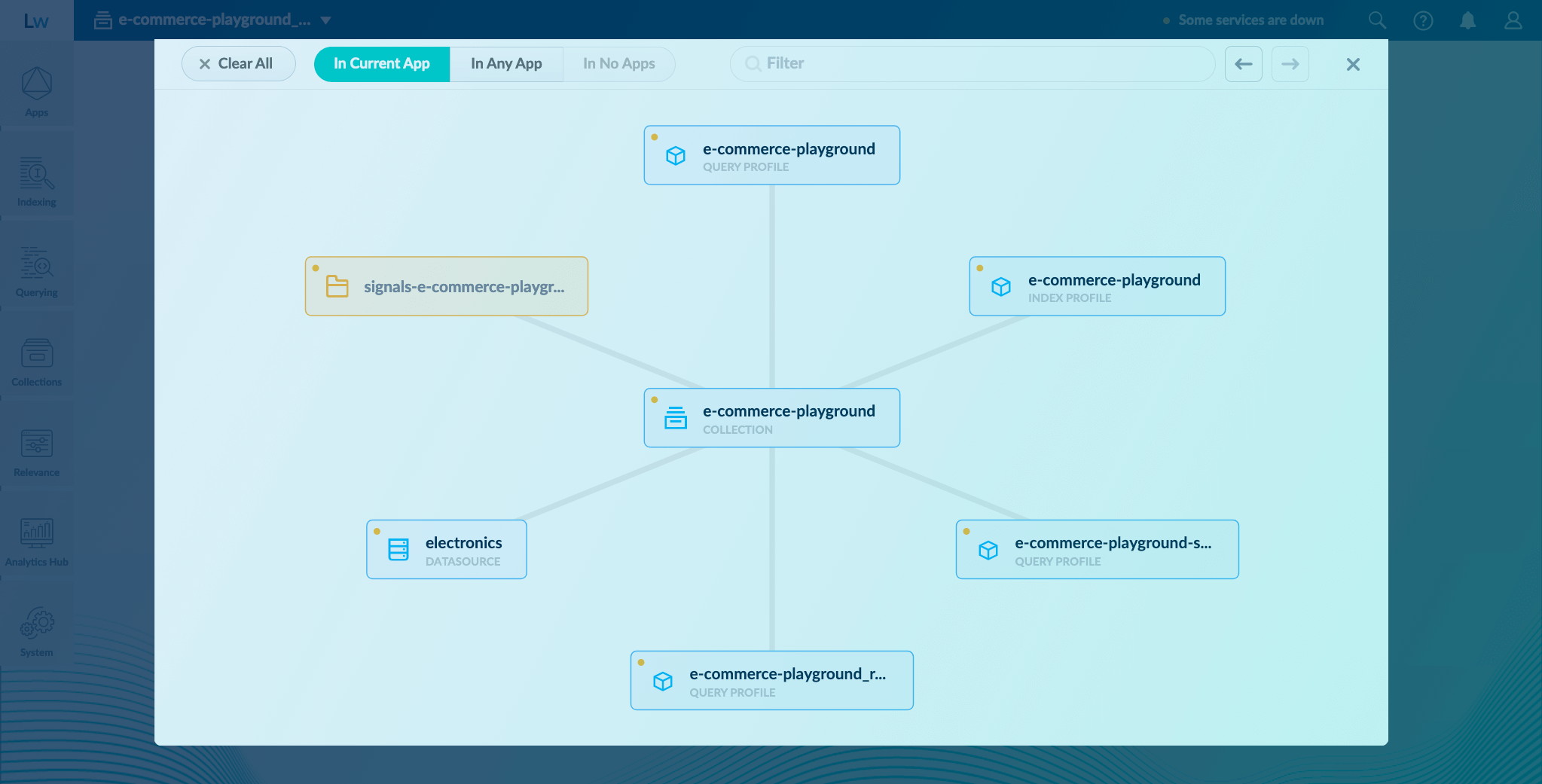Indexing Your Data
Indexing stores your data in a format that is optimized for searching. How you index your data is critical for ensuring that your data is stored in a format that is ideal for your search application.
-
Index pipelines determine the details of the conversion.
-
Index pipeline stages are the building blocks of index pipelines.
-
The Index Workbench is Fusion’s index pipeline development tool.

Collections
Collections are a way of grouping data sets so that related data sets can be managed together. Every data set that you ingest belongs to a collection. Any app can contain one or more collections. See Collection Management.
Datasources
Datasources are configurations that determine how your data is handled during ingest by Fusion’s connectors, parsers, and index pipelines. When you run a fully-configured datasource, the result is an indexed data set that is optimized for search, depending on the shape of your data and how you want to search it. See Configure a New Datasource.
Connectors
Connectors are Fusion components that ingest and parse specific kinds of data. There is a Fusion connector for just about any data type.
Additional resources
|
Lucidworks offers free training to help you get started. The Quick Learning for Indexing Menu Tour focuses on the Indexing Menu features and functionality along with a brief description of each screen available in the menu: Visit the LucidAcademy to see the full training catalog. |
|
Lucidworks offers free training to help you get started. The Quick Learning for Anatomy of Indexing focuses on the Fusion objects that work together to index your data: Visit the LucidAcademy to see the full training catalog. |
|
Lucidworks offers free training to help you get started. The Course for Indexing Data focuses on how to ingest and store your data in a format that’s optimized for search: Visit the LucidAcademy to see the full training catalog. |


